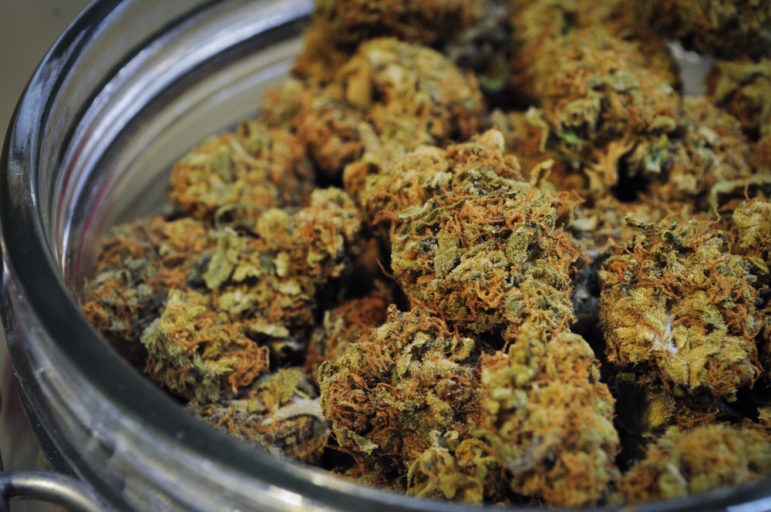
Dank Depot
Several studies have found that medical marijuana has reduced opiate deaths by 25 percent while significantly curbing opiate use among Medicare patients.
While there is no silver bullet for solving an opioid epidemic that has claimed the lives of thousands of New Yorkers, the surest way to stem the tide is by preventing addiction from occurring in the first place. Fortunately, state lawmakers have a golden opportunity to begin doing this by expanding access to medical marijuana treatments that can provide patients a valuable alternative to addictive prescription drugs.
What’s clear is that policymakers must be open to a range of approaches for curbing New York’s escalating opioid crisis. A recent Rockefeller Institute study found opioid-related deaths are surging in New York City and across the state. From 2015 to 2016, opioid-related deaths increased by 39 percent in the city and 23 percent throughout the rest of the state, as New York’s drug death rate climbed from 34th worst in the country to 27th worst. Overall, the state has seen a staggering 121 percent increase in opioid deaths since 2010.
In response to this increasing public health crisis, lawmakers have taken several steps in recent years to try to reverse the trend. This has included more than $25 million in federal funding to expand services for those with opioid-use disorders in counties that have been hit hardest by the crisis. In February, Governor Cuomo announced $10 million in state funding for detox withdrawal services.
While these funds are critical for helping those who have fallen victim to opioid addiction, they should be part of a multifaceted effort that includes greater access to effective treatment alternatives to opioid-based prescription drugs — a major gateway to addiction. In fact, according to the National Institute of Drug Addiction, the vast majority of opioid deaths in the United States are linked to legally obtained prescriptions.
Medical marijuana can provide this alternative and should play a key role in New York’s fight against opioid use, but it can only do so if more patients who need it can get it.
While the state’s medical marijuana program launched in January 2016, access remains limited for a variety reasons. The list of eligible conditions for entering the program is restrictive, while dispensaries are still widely scattered across the state. Last year, the state took several steps to build on the program by making post-traumatic stress disorder and chronic pain eligible conditions and licensing five new companies to produce and dispense medical marijuana products.
But two pieces of proposed legislation in Albany offer lawmakers the opportunity to dramatically expand the state’s program and target medical marijuana to those who are mired in opioid use and addiction. These bills would allow doctors to prescribe medical marijuana as a treatment for opioid addiction while increasing the number of dispensaries each company can operate from four to 25.
As a doctor who has helped hundreds of patients at my Manhattan and White Plains clinics apply for the state’s program and find the right medical marijuana treatments, I know firsthand the role cannabis-based medicines can play in reducing the use of prescription drugs such as morphine and fentanyl. In fact, many of my patients come to me in the midst of exhaustive battles with opioid use, searching for an alternative to these powerful drugs that will help them manage their pain.
Numerous studies support the results we regularly see at my clinics. Several studies, for instance, have found that medical marijuana has reduced opiate deaths by 25 percent while significantly curbing opiate use among Medicare patients.
Of course, expanding access to medical marijuana is not a panacea for ending New York’s opioid crisis. But it can offer hope for those in pain who are desperate for an alternative to the prescription drugs that have cut short too many lives throughout our state. I hope lawmakers will listen to those of us who see the potential in medical marijuana and take action that will save lives and benefit thousands of New Yorkers.
Dr. Junella Chin is a Bronx native and osteopathic physician who operates clinics in Manhattan and White Plains.








